Healthy People, Healthy Land
Healthy Lesotho works with local partners on improving the lives and land of the Kingdom of Lesotho, an independent country situated within South Africa. Click here for more information.
the news posts for the sidebar
Healthy Lesotho works with local partners on improving the lives and land of the Kingdom of Lesotho, an independent country situated within South Africa. Click here for more information.
Global Citizen Journey is currently planning to travel to Guatemala, “Land of Eternal Spring,” in the fall of 2026 in partnership with Taa’ Pi’t. Located in San Pedro La Laguna on the southwest shore of Lake Atitlán, the efforts of CIE Taa’ Pi’t aim to improve children’s education, preserve the Tz’utujil Maya culture, promote ecological conservation, and encourage sustainable practices. A holistic approach, respecting the perspectives of all communities and valuing Maya cultural practices of sustainable management, is essential for preserving the “mother earth” and “mother lake Atitlán” as sources of health and well -being for future generations.
Stay tuned for news of Global Citizen Journey’s next adventure to Guatemala.
Global Citizen Journey had planned to travel to Uganda, ‘The Pearl of East Africa,’ in partnership with Uganda Martyr’s Orphanage Project in Tororo. The November 2020 trip has been postponed indefinitely due to the pandemic and now the ensuing hardships being experienced there. Food shortages, spiraling inflation and a host of political complications combine to put tremendous stress on our friends and colleagues there. We hope we will some day be able to join 12 North Americans with 12 Ugandans to live, eat and dialogue with one another while we engage with the local community and the children, as well as help launch a health centre that cares for UMOP students and community members. We will also meet with the Jewish Abayudaya community. (An optional post-delegation safari will be offered.)
Stay tuned for news of Global Citizen Journey’s next adventure to Uganda, Africa!
Global Citizen Journey returns to India with ambitious and adventurous plans to visit one of the most beautiful, diverse, and contested areas of India in September 2018. Most of us know little about Kashmir beyond a vague awareness that it is embroiled in intractable conflict. We will be guided by our local sponsor ELFA International (Education and Livelihood For All) who will connect us with local Kashmiri leaders, nonprofits and organizations so that we can learn, explore, and listen together.
Our goal is to foster dialogue and relationship building and find bases of unity, a common purpose, and a creative process as well as a project that will be meaningful to the Kashmiri people. Read more.
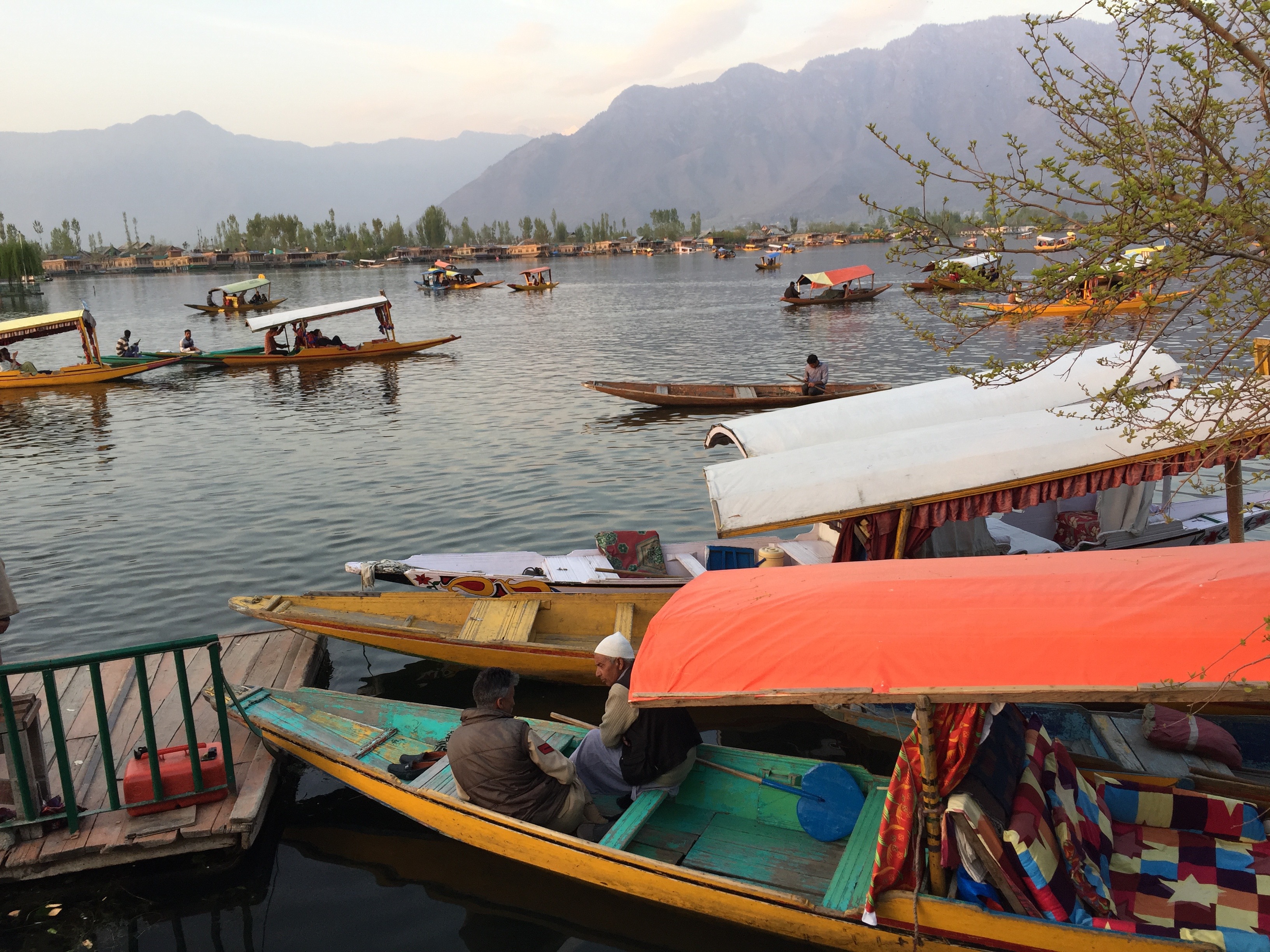
NEWS FLASH: GCJ Delegation departs on January 9! Stay tuned for blog entries from India.
We will begin in Delhi: all 11 US delegates will gather by Thursday evening, January 12. We’ll spend the weekend enjoying visits to historical sites, such as temples, fortes, Old City, the museum at the site of Gandhi’s assassination — and a trip to Agra to see the Taj Mahal. We will also visit several NGO’s and meet local leaders.
Then on to Pune where we’ll join our 11 Indian delegates plus 2 Maher hosts and spend 8 days in the rural areas of Maher homes, interacting with the women and children of our home site (Vatsalyadham) as well as visiting the many varied aspects of Maher activities, including the self help groups, preschool in the slum, women’s vocational training, etc.
We’ll also visit Pragati Leadership in Pune, to discover how they combine western results-orientation training with spirituality, as well as their small foundation that supports and empowers urban women. The US delegates will spend our last days up in the Hill Station of Panchagani, partaking in the international program of Initiatives of Change in the morning and spending the afternoon reflecting and harvesting on all our learning. The program ends in Pune, on Friday afternoon, January 27.
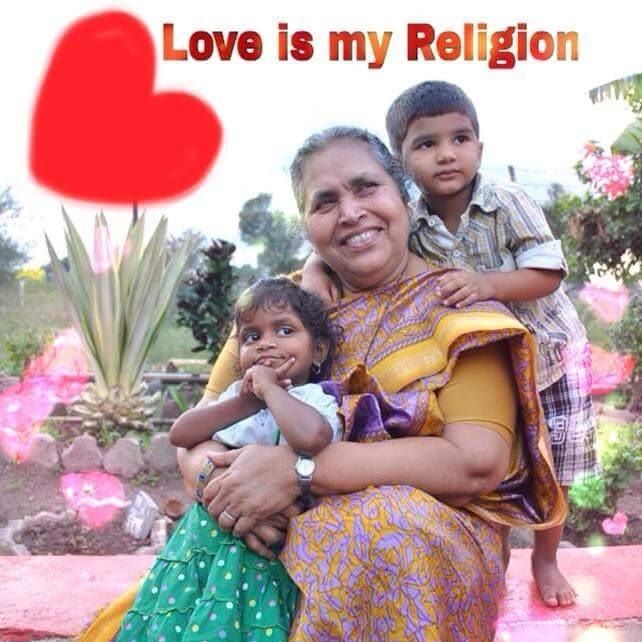
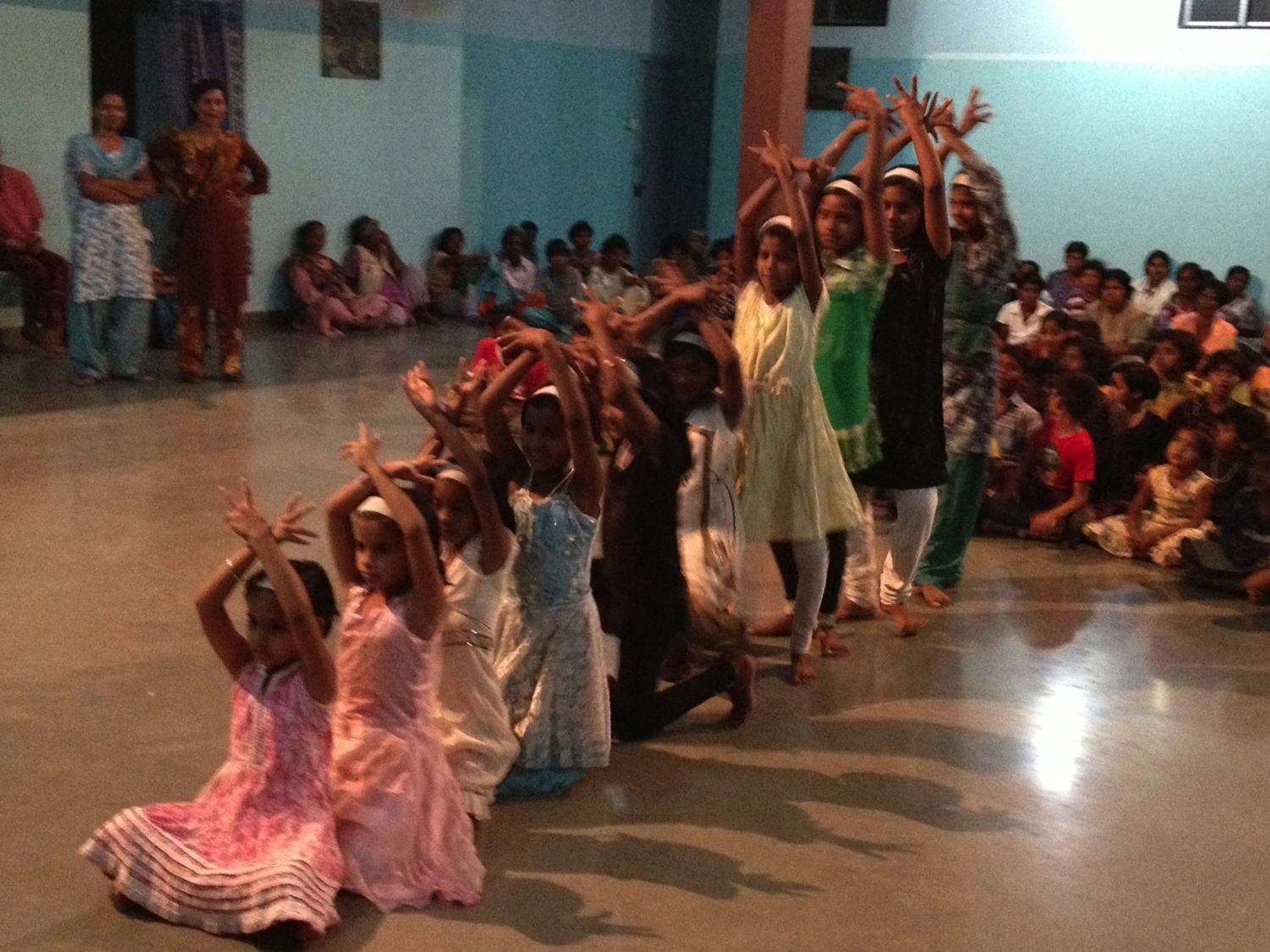
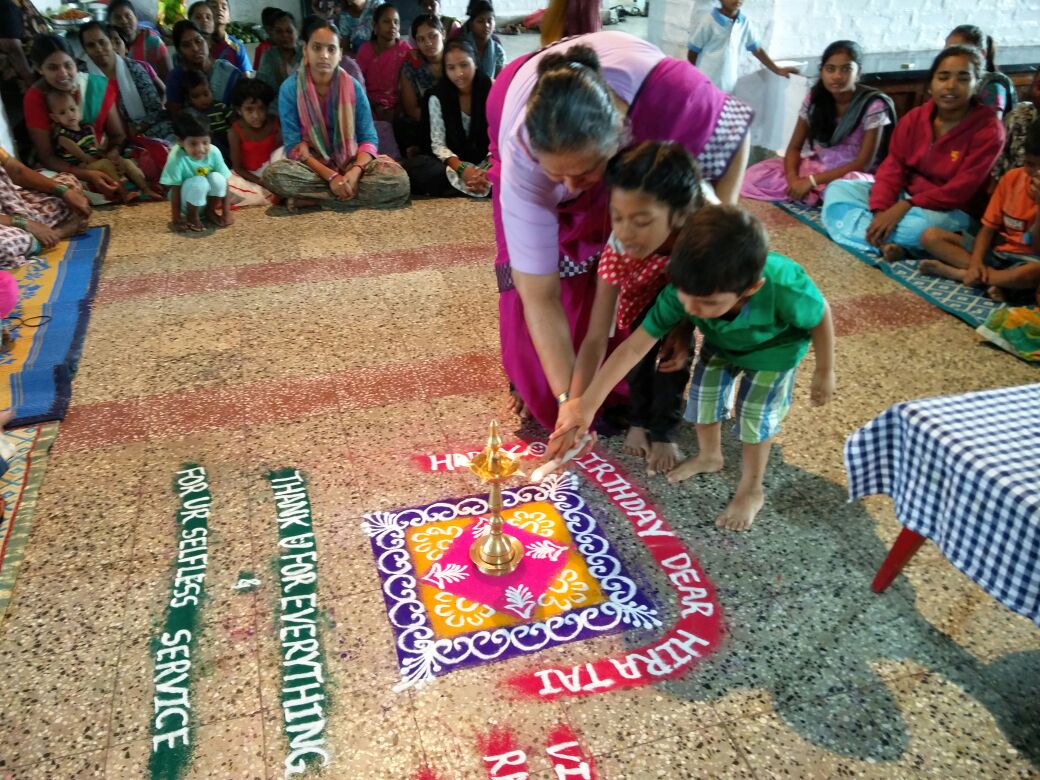
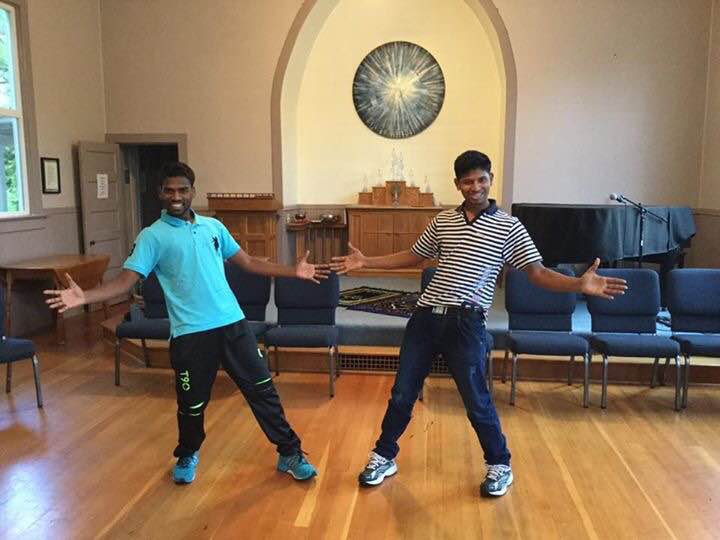
GCJ’s Initial Trip to Liberia
In January, 2010, Executive Director Susan Partnow, Liberia Project Director Harriett Nettles, and Volunteer Alexandra Valin traveled to Liberia to develop partnerships and assess whether this design is appropriate, needed and feasible. They met with numerous organizations, including The Carter Center, Liberia Democracy Watch, Angie Brooks Center for Women’s’ Leadership, The National Traditional Council of Elders (Ministry of Internal Affairs), Catholic Justice & and Peace Commission, WANEP, WIPNET, Cuttington University Institute for Peace and Conflict Resolution, Inter-Peace, Liberia Council of Churches, Inter-Religious Council, MARWOPNET (Mano River Women’s Peace Network), OSIWA (Open Society Initiative for West Africa), and the Peacebuilding Office at the Ministry of Internal Affairs. Each of these organizations were enthusiastic in welcoming this Initiative, found its design to be complementary to work they are doing, and validated its design and need. Their feedback has been incorporated. They are open and willing to serve as partners, especially in the recruitment of the Peacebuilder Teams.
A highlight of the trip: We were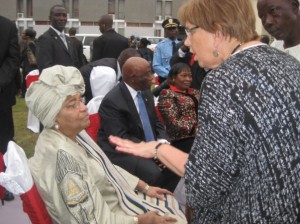 thrilled to have the chance to meet the President, Ellen Sirleaf Johnson, as special invited guests of the National Traditional Chief. And we got to end the celebration with hot, sweaty dancing with a wonderful group of women plus the mayor of Monrovia.
thrilled to have the chance to meet the President, Ellen Sirleaf Johnson, as special invited guests of the National Traditional Chief. And we got to end the celebration with hot, sweaty dancing with a wonderful group of women plus the mayor of Monrovia.
One of the main purposes of this trip as to test the model of the Summits. We hosted a very successful mini-summit in Gbarnga (central Liberia), gathering a diverse group of 27 participants for 2.5 days. The participants ranged from illiterate traditional leaders to skilled mediators and facilitators, including women, youth, locals, Muslims, Christians, and participants from Monrovia and Sapo in the South. The training in Compassionate L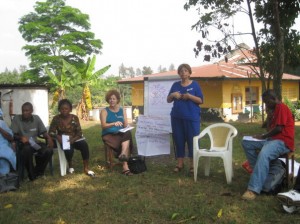 istening was welcomed with open hearts and transcended all language barriers: participants were deeply touched to listen with their hearts, not just the head.
istening was welcomed with open hearts and transcended all language barriers: participants were deeply touched to listen with their hearts, not just the head.
Our lively role plays of restorative justice circles validated the compatibility of these skills with traditional practices. Dialogue around forgiveness and reconciliation was deep and inspiring, as the circle came to understand forgiveness is for oneself, not the ‘Other.’ The group also stepped right up to the empowering practices of the Town Hall, engaging in a World Café dialogue and Open Space, where many topics were raised and explored. All in all, the mini-summit gave great value to the participants and validated the design we are planning for the larger initiative. We were delighted to have participants from the Carter Center and Justice & Peace Commission, who have received extensive training in the past and who are building networks of community workers: they confirmed that LPI will add to the work of peacebuilding in Liberia in valuable ways.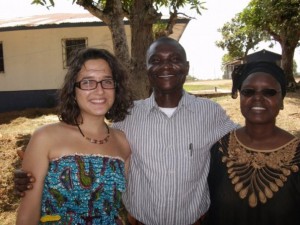
Why launch the Liberia Peacebuilder Initiative?
In December 1989, Liberia plunged into a brutal civil war, which resulted in the deaths of over 250,000 people. The war divided families, tribes, friends; devastated infrastructure; and threatened to destroy Liberian culture, traditions, beliefs and norms. Fortunately, a peace agreement was signed and elections were held, bringing Ellen Johnson-Sirleaf to the Presidency. Although much of the Liberian population accepts the need for and welcomes the prospect of reconciliation between the tribes and the divided people of Liberia, there is little actual understanding of the mechanisms and complexities of reconciliation and peace. Many Liberians speak of reconciliation in vague terms such as the need to love, respect and forgive each other, without being able to actualize these concepts in relation to members of other tribes or opposing groups.
Enhancing the capacity of local, grassroots leaders to promote dispute resolution and reconciliation is critical for the Liberian people in order to heal the past, facilitate forgiveness, and bring the diverse constituents together. Although valuable support from the global community has been extended, much greater effort is needed to consolidate the effort at the community and ethnic level, build a sustainable peace, and empower Liberians themselves to preserve this peace into the future. Strategies for reconciliation and the healing of relationships that are culturally appropriate to the Liberian context must be developed, taught and widely promoted throughout the rural counties. Developing the skills of local leaders will increase the likelihood that community conflicts will be resolved nonviolently in the future. It is important to work toward the cultivation of grassroots skills in conflict prevention, containment, and transformation. There are no greater threats to democracy than war and the tensions and conflicts that permeate a fragile post-conflict situation. The goal of this initiative is to promote the basic skills required for democracy – the ability to express and listen to different perspectives, the respect for cultural differences, and the willingness to work for the common good, and to work at the grassroots level in the communities – as well as the capacity for individual healing.
GCJ brings the expertise of US specialists together with the guidance of our local partners, as the experts on their own traditions and culture. This effort, we believe, will sow the seeds for a successful, long-term grassroots peace movement and the realization of a sustainable, uniquely Liberian democracy.
Our ultimate vision is to hold an ongoing series of Summits: The initial team of three Peacebuilders will come from an individual community so they can support each other upon their return; at the second and each subsequent Summit, one of the three will return along with a pair from a different, near-by community. In this way, we reinforce, integrate and extend the skills of the original participants, while expanding the network with new members. The first Summit will be regional, gathering Peacebuilder teams from Nimba, Bong, Lofa and Grand Gedeh. Ultimately we hope to work in the three major regions of the country and then bring representatives from each to a National Summit, thus weaving a vibrant, national network of Peacebuilder teams representing all of the diversity of Liberia
Peacebuilder Summit: A basis for bringing these grassroots leaders together across their ethnic group differences arises from the Contact hypothesis which states that ‘inter-group contact can move towards reducing prejudices and promoting reconciliation and healing when:
Participants will experience what it means to live in a culture of peace, mutual respect and democracy during the Peacebuilder Summit, learning dialogue skills and circle practice. The entire five days of living, eating, learning, dialoging and celebration together in a safe, positive environment, sitting in circles together (the ultimate embodiment of equality) will be a form of transformative dialogue/learning (a process of getting beyond gaining factual knowledge alone to also become changed or ‘transformed’ by what one learns and experiences). Learners will be engaged in critical reflection on their experiences, leading to a transformation of perspective. They will also have many experiences of different identity groups interacting with each other to discover that pre-existing negative stereotypes are in fact groundless and ‘the others’ have positive qualities. The safety in the circle will empower all voices to be heard. Each day will begin and end with reflective practices of silence, focused conversation with a partner, and facilitated debriefing with the whole circle.
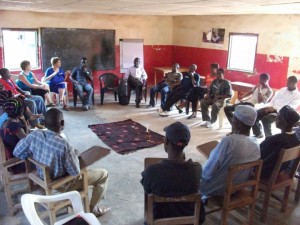 Participants will be taught how to convene Restorative Circles, using the four basic questions: “What happened?”; “How were you affected“; “What needs to be done to make right the wrong?”; “How can we make sure it never happens again?” Training at the summit will involve actual circles where participants can tell their stories with others role playing their offenders. During these circles, participants will be given an opportunity to recount their experience of the civil war and how they were affected, with great care given to create safety and a sense of the sacredness of the sharing. Unfortunately, this deep and healing listening has not necessarily been part of the Truth and Reconciliation Hearings. Victims have revisited their terrible memories without the support that allows the release of grief. After sharing, participants then explore what could be done to repair the damage, restore trust, and move towards forgiveness. (Note: Permission will be sought to allow for the videotaping of the stories so they can be shared with others as a teaching tool.)
Participants will be taught how to convene Restorative Circles, using the four basic questions: “What happened?”; “How were you affected“; “What needs to be done to make right the wrong?”; “How can we make sure it never happens again?” Training at the summit will involve actual circles where participants can tell their stories with others role playing their offenders. During these circles, participants will be given an opportunity to recount their experience of the civil war and how they were affected, with great care given to create safety and a sense of the sacredness of the sharing. Unfortunately, this deep and healing listening has not necessarily been part of the Truth and Reconciliation Hearings. Victims have revisited their terrible memories without the support that allows the release of grief. After sharing, participants then explore what could be done to repair the damage, restore trust, and move towards forgiveness. (Note: Permission will be sought to allow for the videotaping of the stories so they can be shared with others as a teaching tool.)
Large group dialogue: As a way to build connection and trust, and develop skills in dialogue which become the basis for civil society, we will engage the whole group in this powerful process (known as World Café.) The conversation will be about the source and challenges around their identity, the challenges around forgiveness and reconciliation, the future they envision for Liberia, how they can overcome any barriers to bringing this to fruition, and what actions they might take as responsible citizens. In the words of a GCJ Nigerian delegate when he participated in such a conversation, “It’s dynamic, democratic and problem-solving all packed in one process and suitable for complicated and delicate problems. … I was forced to dig deep into my intellect for a solution about what was emerging. By juggling participants continuously and focusing them on clearly stated issues, it helps to keep everyone positive and constructive. In that way, it attacks the problem while giving the people a joyful, fulfilling experience… I remember observing that the faces of all the invitees were relaxed, no one was suspecting his or her neighbour from the other community, and at the end of the circle there was joy and reunion.”
Large Group Dialogue and Action Planning / Open Space Technology: This internationally used model, based on the African marketplace and circle, will create the opportunity for all participants to raise the issues that they consider to be important, to take responsibility for their concerns and needs, and to engage in action oriented dialogue with the group. It has been successfully used even among people who see each other as ‘the enemy.’ Participants set the agenda for small breakout groups and self organize into the conversations of their choice. In doing so they discover new ways of working cooperatively, while expressing their own perspectives, and taking responsibility for what they care about. 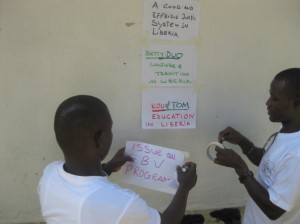 Open Space provides people with experiences of genuine empowerment and the ability to achieve a high degree of collaboration around complex issues. Participants will learn how to facilitate these large group processes through their participation, supplemented by an instruction guide we will give them. They will be able to bring these processes back to their home community to empower their communities to find solutions to their challenges and to resolve their conflicts nonviolently.
Open Space provides people with experiences of genuine empowerment and the ability to achieve a high degree of collaboration around complex issues. Participants will learn how to facilitate these large group processes through their participation, supplemented by an instruction guide we will give them. They will be able to bring these processes back to their home community to empower their communities to find solutions to their challenges and to resolve their conflicts nonviolently.
Cultural and Evening Activities: Participants will engage in cultural activities that increase connectedness and lead to an appreciation of ethnic tradition. Activities include singing, cooking and dancing together, sharing, and making meaning explicit (exchanging world views, traditional myths, storytelling, etc.).
Closing Ceremonies and Rituals: The Peacebuilder Teams will be supported and encouraged to make clear plans for their next steps and to publicly declare their intentions. To further recognition and interconnectedness, closing rituals will include offering each other appreciation. And each group’s traditions will be honored in the closing ceremonies, which will be co-designed with the participants.
Post Summit Follow Up
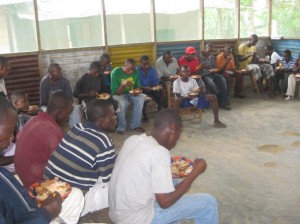
“Building the Global Community through Grassroots Connections, Bridges of Peace”
About | Contact | Get Involved
4425 Baker Ave NW, Seattle WA 98107
© 2018 Global Citizen Journey
+1.206.310.1203 | info@globalcitizenjourney.org
All donations to Global Citizen Journey are tax-deductible to the full extent of the law
